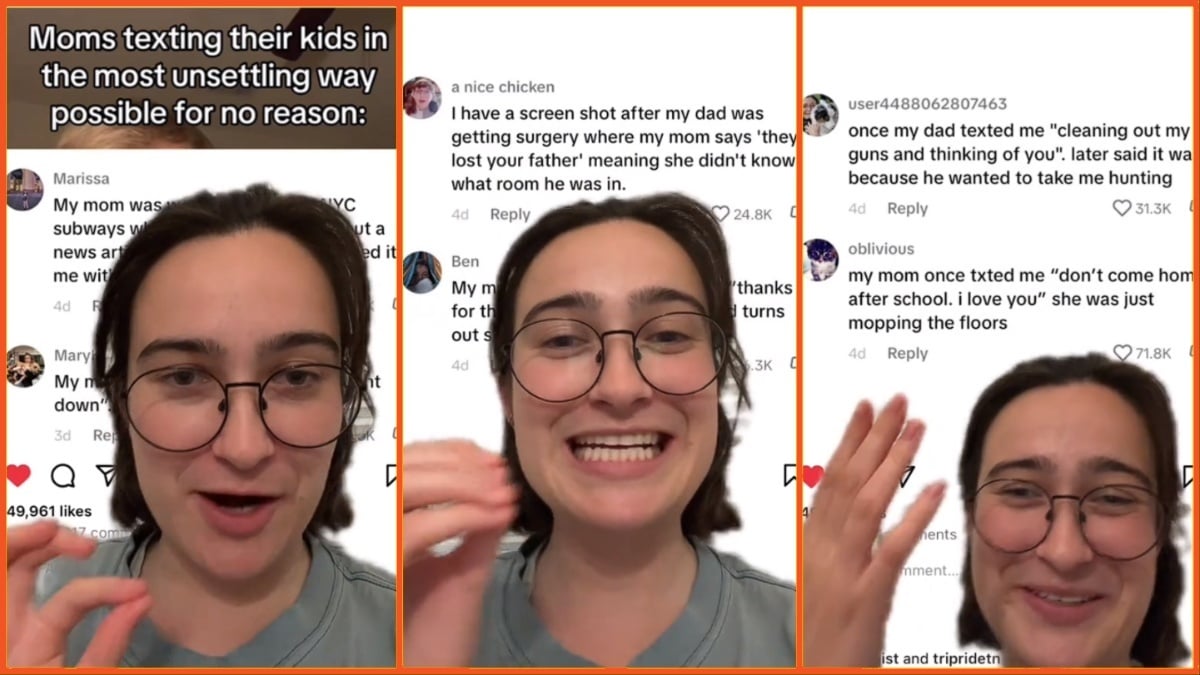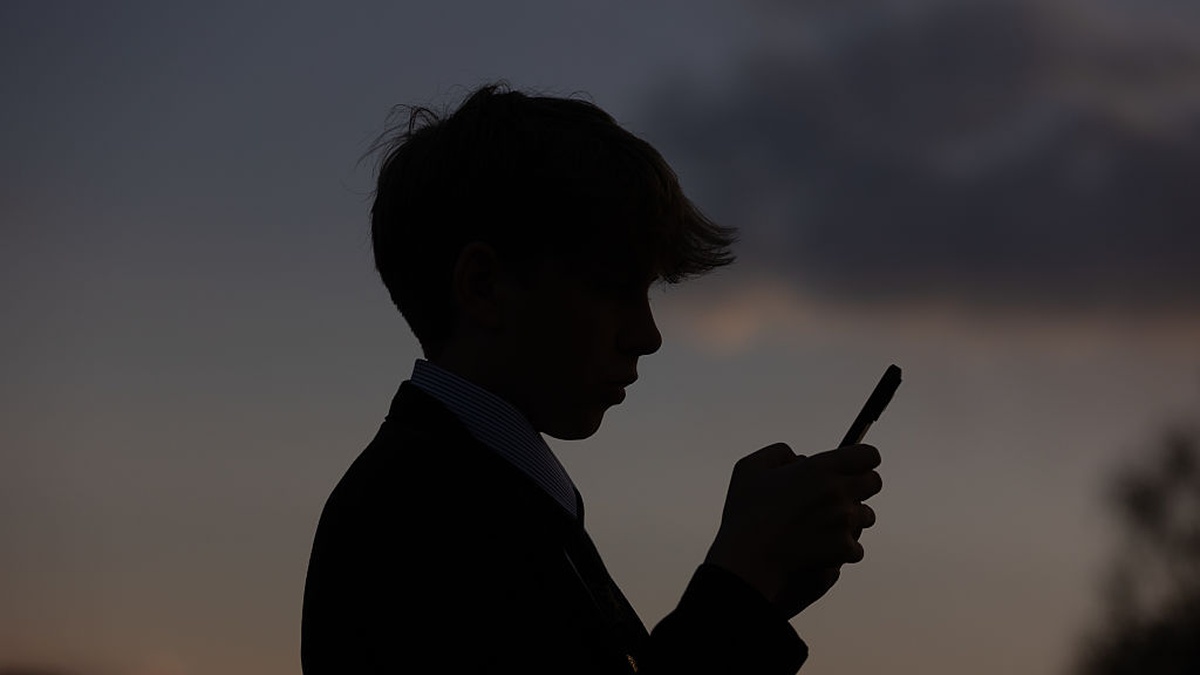We need to talk about the secret age milestones that nobody talks about; everyone likes to make a big deal over being able to legally purchase alcohol when you turn 21, but there’s very little celebration for new 40-year-olds who have earned the right to justify feeling bitter.
Similarly, by the time you turn 50, you’re allowed to be incomprehensibly reckless when handed a piece of communication technology, much to the mirthful chagrin of your younger kin.
As documented by TikTok‘s @allie_202_, we are facing an absolutely gonzo epidemic of older generations being pathologically unable to send a text message without being unnecessarily morbid. Among the top contenders of Allie’s discoveries was a mother who was concerned about the rates of violent crime in New York City, where her daughter lived, and so she thought it appropriate to mail her daughter — in a nameless package no less — a cut-out newspaper article about a murder. One can only imagine the alarm bells that went off in the daughter’s head when that little gift found its way into her mailbox.
Another gem was from a mother texting their child “Don’t come home after school. I love you” with no additional context; what unspeakable, traumatizing horrors may have greeted the poor child if they had come home that day? Well, it turns out the mother had simply mopped the floors and either didn’t want the floors to get dirty and/or didn’t want their child to slip and fall. That is important information, people.
But what exactly are the nuances of this apparent aversion to context? According to Widener University associate psychology professor Maureen Coyle, in a 2023 interview with the Huffington Post, older generations tend to regard text messages as short-hand, relatively unimportant communication reserved for conveying raw information and reminders rather than anything truly meaningful. Additionally, North Carolina State University digital communication associate professor Stacey Pigg, in a 2019 interview with WRAL News, suggests that digital communication (i.e. texting) requires a certain literacy that other forms of communication do not; for instance, the inherent lack of tone in text messages must be made up for with the likes of emojis or additional written information that establishes the tone.
Older generations, then, may not immediately consider what is lost in digital communication that they take for granted in face-to-face interactions or phone calls. Therefore, they don’t think to make up for those losses in their text message. A more traditional conversation, for instance, might have automatically conveyed mopped floors, or at least something of equal or lesser mundanity on account of the mother’s spoken tone. Further still, there would have been more immediate space for a follow-up “why?”, which the mother could then answer. In fact, perhaps that was the exchange that the mother visualized in her head when she sent that original text, and didn’t consider why that exchange may not work in the context of texting.
So give your beloved boomers some grace here, folks; they weren’t born on top of the technological learning curve like we were.











Published: Jul 24, 2024 03:04 pm